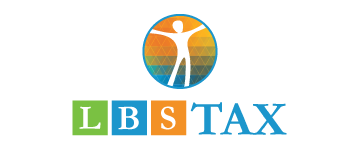Why Was Tax Day Moved to July 15, 2020?
The IRS announced earlier this year that the tax deadline is extended from April 15, 2020, to July 15, 2020, as part of its overall response to the current COVID-19 pandemic. This extension means that:
- Taxpayers have until July 15, 2020, to file 2019 income tax returns that would have otherwise been due on April 15, 2020.
- Taxpayers have until July 15, 2020, to make income tax payments that otherwise would have been due on April 15, 2020.
- Taxpayers have until July 15, 2020, to make estimated income tax payments that otherwise would have been due on April 15, 2020.
- Taxpayers do not have to take any action to take advantage of the extension, but they must file for a further extension by July 15, 2020.
- Any taxpayer who accurately estimates their 2019 tax liability and makes a payment by July 15, 2020, has until October 15, 2020, to file their tax return.
- Taxpayers have until July 15, 2020, to contribute to a 2019 IRA, HSA, or Archer HSA.
What to Do if You Missed the July 15 Deadline for Taxes

If you missed the tax deadline this year, call an accountant at LBS Tax to explore your options! Don’t delay– call us today!
If you missed the tax deadline or cannot pay your taxes by July 15, 2020, you need to do the following:
Consult with an Accountant
Every taxpayer’s situation is different. If you missed the July 15 deadline for filing your tax return or you did not pay your taxes by July 15, you need to consult with an accountant. If you are due a refund, you may not suffer any penalties for filing late. However, there can be significant consequences for taxpayers who owe taxes and fail to pay by the deadline. A tax professional can help you sort through these situations.
File an Extension and Pay the Estimated Tax Liability
If you forgot to file your tax return, you could file for an extension. However, keep in mind that the extension only applies to tax returns. Tax payments are still due on July 15, 2020, regardless of whether you have filed your tax return or not. Consult with a local tax professional, such as the experienced team at LBS Tax, to estimate your tax liability for 2019. According to the IRS, taxpayers must pay their estimated tax liability at the same time as filing an extension.
Consequences of Missing the July 15 Tax Deadline
If you missed the July 15 tax deadline, the consequences depend on your individual tax situation.
If You Qualify for a Refund
If you fail to file your tax return by the July 15 deadline but you are owed a refund, you will not suffer any penalties for filing your return late. However, this does not mean that you should put it off much longer. You only have three years to claim a tax refund due to withheld tax, estimated tax paid, and refundable credits. After that period, the unclaimed refunds are the property of the United States Treasury. Consult an accountant to determine how much of a refund you are due and file your tax return as soon as possible.
If You Owe Taxes
If you owe taxes, the consequences for missing the tax deadline can add up quickly. You may be subject to the following penalties:
Failure to File Penalty
If you fail to file your tax return by the deadline and you owe taxes, you will be subject to the failure to file penalty. The failure to file penalty is 5% of the unpaid tax, but it is lower during months where both the failure to file penalty and failure to pay penalty apply. The failure to file penalty applies each month. Therefore, even if you are only two weeks late filing your taxes, you will still be charged the full month penalty. If you file more than 60 days late, the IRS requires a minimum amount of $215 or 100% of the necessary tax, whichever is less.
Failure to Pay Penalty
If you don’t pay your taxes in full by the deadline, the IRS will charge you a failure to pay penalty. The penalty is 5% of the tax owed per month. If you file your tax return and pay your taxes two months late, you’ll be charged 5% each for the failure to file penalty and the failure to pay penalty for each month with a 0.5% reduction for both penalties applying, resulting in an extra 19% tax payment penalty on top of the owed taxes.
Failure to Pay Proper Estimated Tax
If you expect to owe at least $1,000 when preparing your taxes, the IRS requires you to make an estimated tax payment. If you make a payment of an insufficient amount, the IRS may subject you to interest or an estimated tax penalty. In some cases, the IRS may waive the estimated tax penalty for first offenses. However, you must meet criteria such as:
- You filed all currently required tax returns or filed an extension.
- You weren’t required to file a tax return or had no penalties for the last three years.
- You paid or arranged to pay the tax due.
While the IRS does not typically remove interest from past-due payments, they may remove interest from the penalties if the penalty is waived. However, every tax situation is different. You should consult with an accountant at LBS Tax to determine the best course of action for you.
How Can LBS Tax Help You?
We here at LBS Tax specialize in tax resolution. We serve clients virtually, so don’t hesitate to reach out. If you want an expert tax resolution specialist who knows how to navigate the IRS maze, reach out to our firm, and we’ll schedule a no-obligation confidential consultation to explain your options to resolve your tax problem permanently. We can help you if you missed the tax deadline. Call today to get started!

